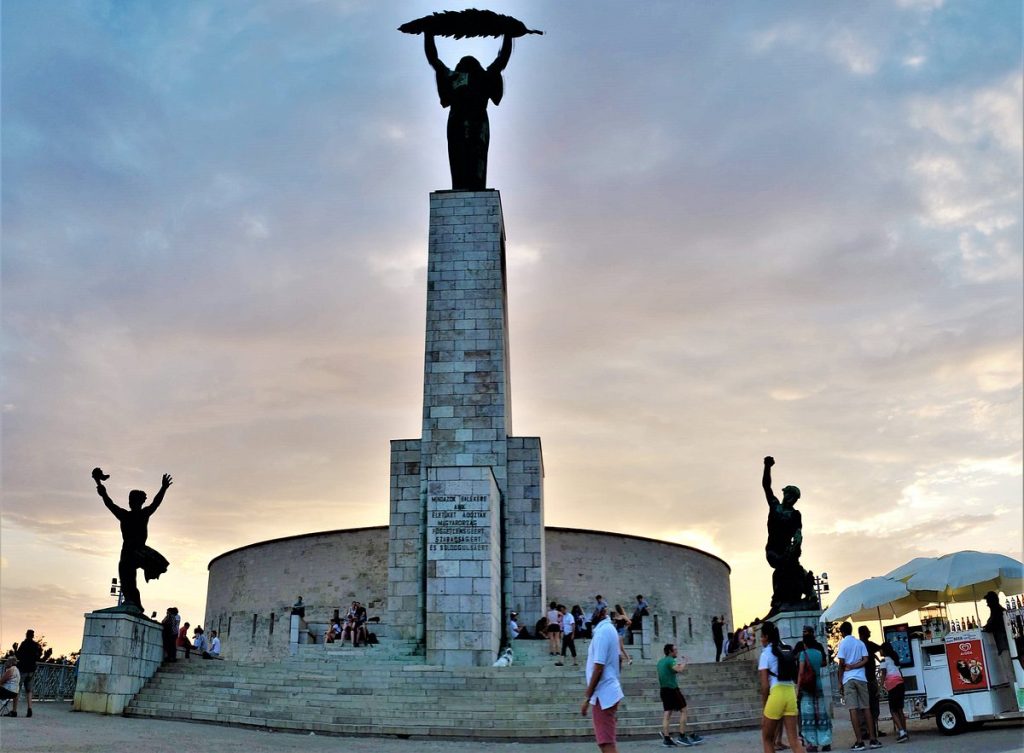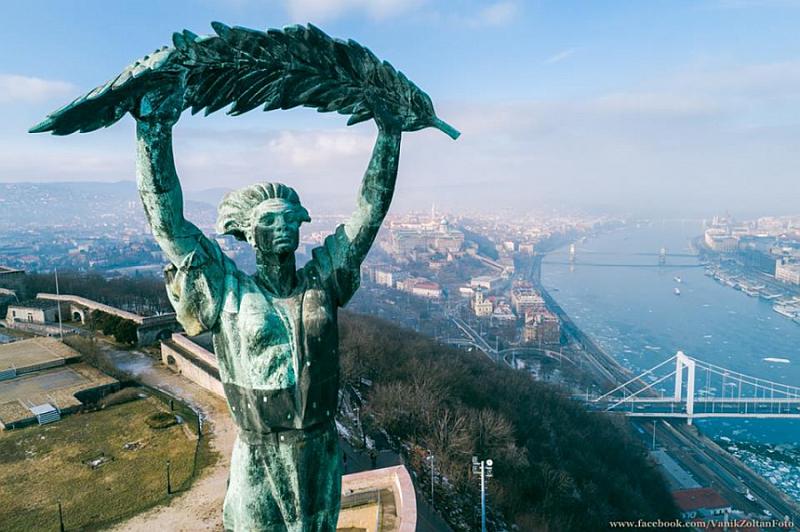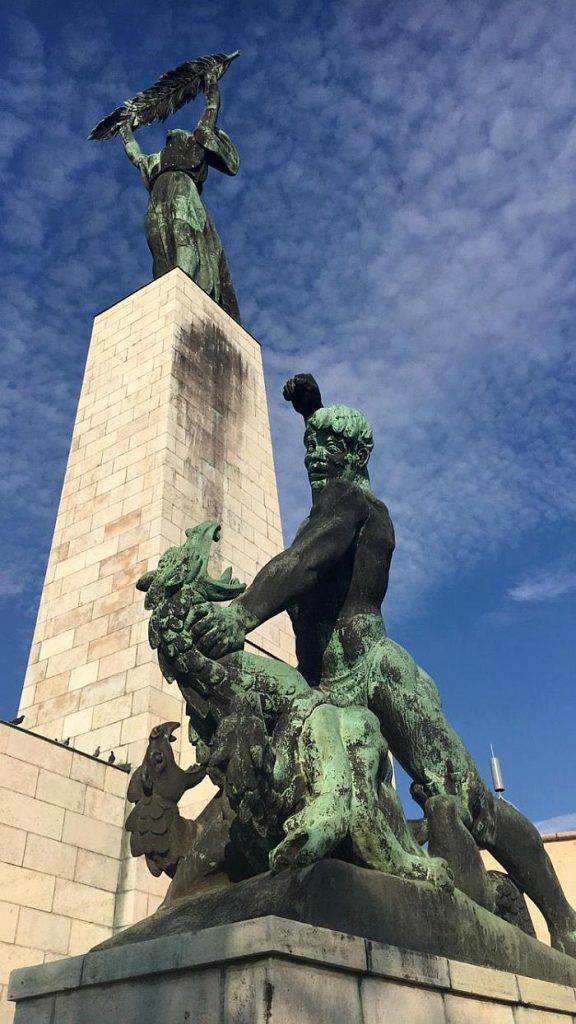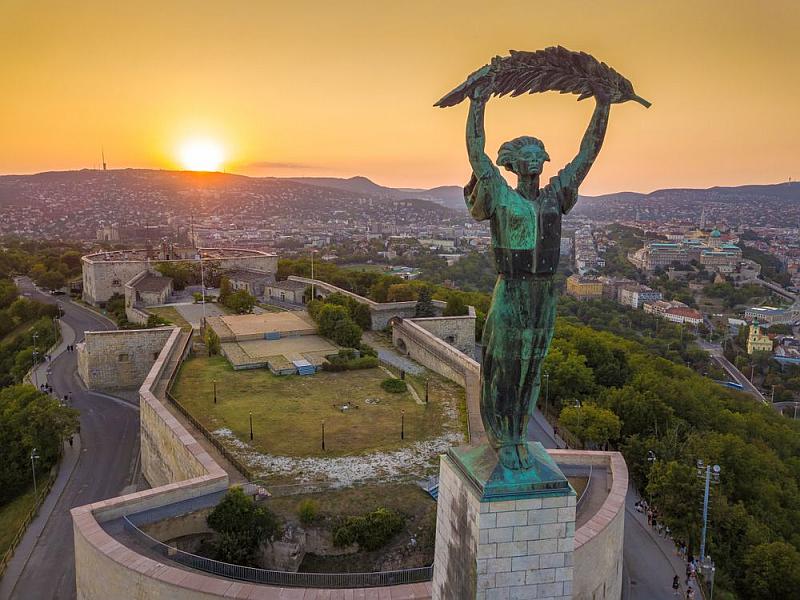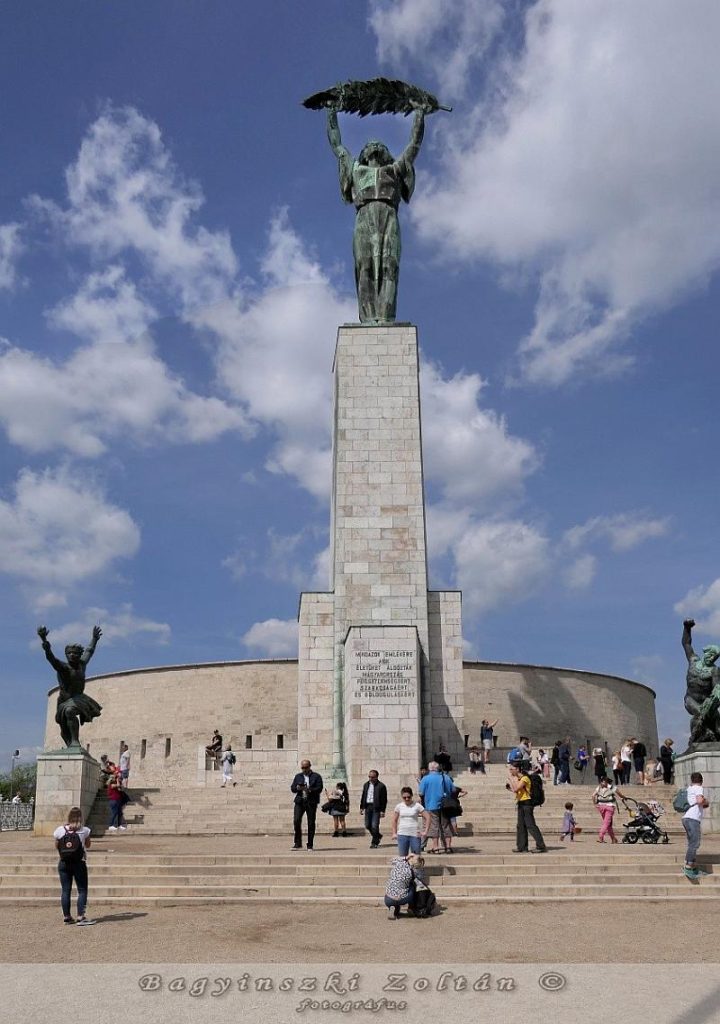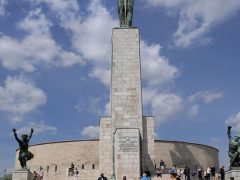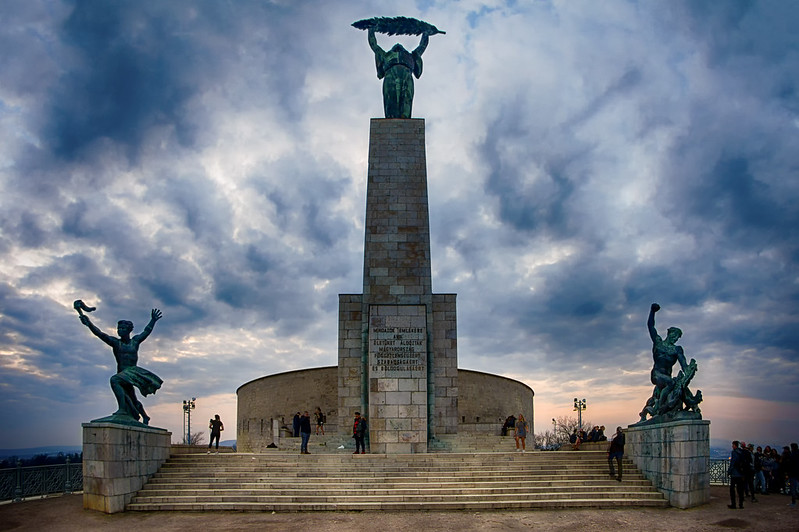The Liberty Statue of Budapest: A Beacon of Freedom and History
Perched atop Gellért Hill, the Liberty Statue of Budapest is not merely a monument; it’s a poignant emblem of Hungary’s quest for freedom and a testament to the resilience of its people. As a beacon of hope dominating the city’s skyline, this statue offers a historical lesson and a symbol of enduring liberty.
A Monument with a Multifaceted Past
Inaugurated in 1947, the Liberty Statue originally commemorated the Soviet liberation of Hungary from Nazi occupation. Its roots, however, delve deeper into the pre-WWII era, reflecting Budapest’s complex narratives through its evolving inscriptions and interpretations. Today, it stands as a universal symbol of liberation, its palm leaf a sign of peace amidst the city’s changing tides.
An Unwavering Symbol of Liberation
The Liberty Statue’s journey mirrors Budapest’s tumultuous history, enduring as a steadfast reminder of sacrifice and the unyielding desire for freedom. Its silhouette against the Budapest skyline reminds the city’s residents and visitors alike of the struggles overcome and the hope that guides the future.
A Journey into Budapest’s Heart
Visiting the Liberty Statue offers more than a panoramic view of the city; it’s an immersion into the spirit of Budapest. The statue’s towering presence and serene location on Gellért Hill provide a reflective space to ponder the past, appreciate the present, and anticipate the future of this vibrant city.
Did you know about the Liberty Statue?
The Liberty Statue in Budapest, Hungary, is a prominent monument atop Gellért Hill. This statue is a significant landmark in the city and a symbol of Hungary’s history and freedom. Here are some key aspects of the Liberty Statue:
- Historical Context: The Liberty Statue was erected in 1947 to commemorate the liberation of Hungary from Nazi occupation by the Soviet Red Army during World War II. Originally, it was dedicated to the Soviet soldiers who lost their lives during the liberation of Hungary.
- Design and Features: The statue features a woman holding a palm leaf above her head, symbolizing victory and peace. The monument is made of bronze and stands on a tall stone pedestal, making it visible from various points across Budapest.
- Evolution of Significance: After the fall of the Soviet Union and the end of communist rule in Hungary in 1989, the statue’s significance evolved. It now serves as a broader symbol of freedom and liberty for the Hungarian people rather than exclusively commemorating the Soviet liberation.
- Location and Accessibility: Positioned on Gellért Hill, the Liberty Statue offers panoramic views of Budapest, including the Danube River, the Hungarian Parliament Building, and other key landmarks. The hill and the statue are accessible to visitors, offering a popular spot for sightseeing and photography.
- Additional Monuments: In addition to the Liberty Statue, the Gellért Hill monument complex includes other sculptures and plaques dedicated to various figures and events in Hungarian history, adding depth to the site’s historical significance.
- Cultural and Tourist Attraction: The Liberty Statue is one of Budapest’s most iconic landmarks, attracting tourists worldwide. It is not only a symbol of Hungary’s tumultuous history but also a testament to the nation’s resilience and desire for freedom.
- Nighttime Illumination: The statue is illuminated at night, creating a striking figure against the Budapest skyline. The illumination enhances its visibility and beauty, making it a distinctive feature of the city’s nightscape.
The Liberty Statue stands as a powerful reminder of Hungary’s struggle for freedom and independence, symbolizing hope, peace, and the enduring spirit of the Hungarian people. Its prominent location and historical significance make it a must-visit monument for those exploring Budapest’s rich cultural tapestry.
Conclusion
The Liberty Statue is more than just a landmark; it’s a living narrative of Budapest’s enduring spirit of resilience and hope. Visiting this iconic monument is a journey through time, offering insights into the sacrifices made for freedom and the ongoing quest for peace and prosperity. As it stands overlooking Budapest, the Liberty Statue remains a beacon of liberation, inviting all who gaze upon it to remember and aspire towards a freedom-filled future.
